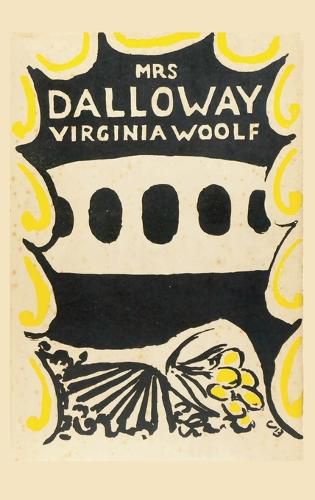Readings Newsletter
Become a Readings Member to make your shopping experience even easier.
Sign in or sign up for free!
You’re not far away from qualifying for FREE standard shipping within Australia
You’ve qualified for FREE standard shipping within Australia
The cart is loading…






This title is printed to order. This book may have been self-published. If so, we cannot guarantee the quality of the content. In the main most books will have gone through the editing process however some may not. We therefore suggest that you be aware of this before ordering this book. If in doubt check either the author or publisher’s details as we are unable to accept any returns unless they are faulty. Please contact us if you have any questions.
Mrs. Dalloway is a novel by Virginia Woolf that details a day in the life of Clarissa Dalloway, a fictional high-society woman in post-WWI England. It is one of Woolf’s best-known novels.
Clarissa Dalloway goes around London in the morning, getting ready to host a party that evening. The nice day reminds her of her youth spent in the countryside in Bourton and makes her wonder about her choice of husband; she married the reliable Richard Dalloway instead of the enigmatic and demanding Peter Walsh, and she had not the option to be with a close female friend, Sally Seton. Peter reintroduces these conflicts by paying a visit that morning.
Septimus Warren Smith, a First World War veteran suffering from deferred traumatic stress, spends his day in the park with his Italian-born wife Lucrezia, where Peter Walsh observes them. Septimus is visited by frequent and indecipherable hallucinations, mostly concerning his dear friend Evans who died in the war. Later that day, after he is prescribed involuntary commitment to a psychiatric hospital, he commits suicide by jumping out of a window.
Clarissa’s party in the evening is a slow success. It is attended by most of the characters she has met throughout the book, including people from her past. She hears about Septimus’ suicide at the party and gradually comes to admire this stranger’s act, which she considers an effort to preserve the purity of his happiness.
$9.00 standard shipping within Australia
FREE standard shipping within Australia for orders over $100.00
Express & International shipping calculated at checkout
This title is printed to order. This book may have been self-published. If so, we cannot guarantee the quality of the content. In the main most books will have gone through the editing process however some may not. We therefore suggest that you be aware of this before ordering this book. If in doubt check either the author or publisher’s details as we are unable to accept any returns unless they are faulty. Please contact us if you have any questions.
Mrs. Dalloway is a novel by Virginia Woolf that details a day in the life of Clarissa Dalloway, a fictional high-society woman in post-WWI England. It is one of Woolf’s best-known novels.
Clarissa Dalloway goes around London in the morning, getting ready to host a party that evening. The nice day reminds her of her youth spent in the countryside in Bourton and makes her wonder about her choice of husband; she married the reliable Richard Dalloway instead of the enigmatic and demanding Peter Walsh, and she had not the option to be with a close female friend, Sally Seton. Peter reintroduces these conflicts by paying a visit that morning.
Septimus Warren Smith, a First World War veteran suffering from deferred traumatic stress, spends his day in the park with his Italian-born wife Lucrezia, where Peter Walsh observes them. Septimus is visited by frequent and indecipherable hallucinations, mostly concerning his dear friend Evans who died in the war. Later that day, after he is prescribed involuntary commitment to a psychiatric hospital, he commits suicide by jumping out of a window.
Clarissa’s party in the evening is a slow success. It is attended by most of the characters she has met throughout the book, including people from her past. She hears about Septimus’ suicide at the party and gradually comes to admire this stranger’s act, which she considers an effort to preserve the purity of his happiness.